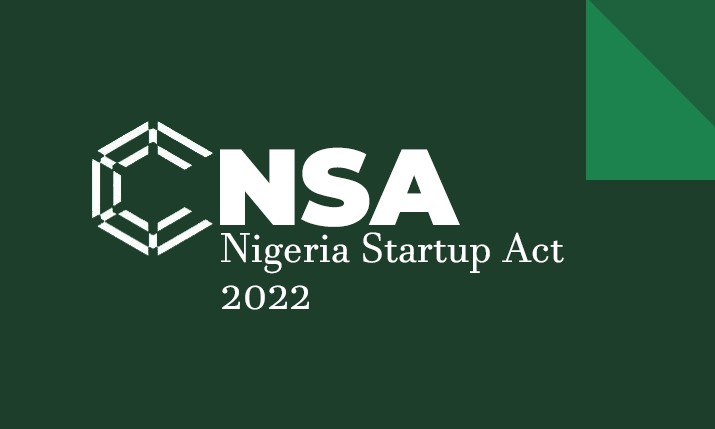On October 19th, 2022, President Muhammadu Buhari signed the Nigerian Start-up Act 2022 into law. This law is designed to create a legal framework for the development of start-ups in Nigeria, as well as to cultivate and nurture technological talent. It aims to make the Nigerian start-up ecosystem the leading digital tech hub in Africa. The National Council for Digital Innovation and Entrepreneurship (the Council) is responsible for administering the provisions of the law, and its Secretariat is run by the National Information Technology Development Agency.
The Act includes standards that all relevant stakeholders such as entrepreneurs, investors, and other parties must observe,. It also sets up an Advisory Board, of representatives from the federal government, private sector, and academia, to provide guidance and advice for implementation. Furthermore, the Act establishes incentives such as grants, tax reliefs, access to public procurement opportunities, and access to venture capital, to promote the growth of the start-up ecosystem.
Additionally, a National Start-up Fund is to be set up to provide financial incentives, such as grants and loans, to start-ups. Lastly, the Act defines a start-up as a company that has been in existence for no more than 10 years, whose purpose is to innovate, produce, develop, or adopt a unique digital technology product, service, or process.

To be officially labelled as a start-up, companies must comply with the requirements stated in the Nigerian Start-up Act. This includes registering as a limited liability company or a sole proprietorship and being in existence for not more than 10 years from the date of incorporation. Companies must also have objectives of innovation, development, production, improvement, and commercialisation of a digital technology innovative product or process
and be a holder of a product or process of digital technology or the owner or author of a registered software.
Additionally, the company must have at least one-third of local shareholding held by one or more Nigerian co-founders or co-founders of the start-up. Furthermore, they must have a minimum of two Nigerian co-founders, 50% ownership by Nigerians, two Nigerian employees, one Nigerian director, and generate at least 50% of their revenue from their core activities. The company must also be able to demonstrate substantial activity and progress in its operations; have evidence of a viable business model, show evidence of market traction, prove that its operations are beneficial to the Nigerian economy; and have a solid business plan that is capable of delivering returns to the shareholders. Once these criteria are fulfilled, the start-up will be issued a certificate of start-up labelling.
A holding company or subsidiary of an existing company that is not registered as a start-up cannot be granted start-up labelling. There is also the pre-label status which is for sole proprietorships or partnerships that have not complied with all the start-up labelling requirements. This pre-label status is valid for 3 months and if not fully complied with during this timeframe, the pre-label status would be lost.

This platform has been created to support start-ups in their registration process with relevant ministries, departments, and agencies (MDAs), obtaining necessary permits and licenses, interacting with the federal government and private institutions, accessing finance, information, innovation, and the global market, and receiving complaints/recommendations from industry stakeholders.
To apply for the start-up label, applicants must submit an application form and other documents to the secretariat. Once approved, the name and particulars of the start-up will be entered into the register, and a start-up label valid for 10 years will be issued. Labelled start-ups are expected to comply with all laws governing businesses in Nigeria, provide information annually on their human resources, total assets, and annual turnover, maintain proper book of account, provide an annual report on incentives received, and notify the coordinator of any changes. If the start-up defaults in any of the obligations or fails to meet the eligibility criteria, the label will be withdrawn unless the default is rectified. The start-up investment seed fund is a sum of not less than NGN10,000,000,000.00 to be paid annually and managed by the Nigerian Sovereign Investment Authority to assist labelled start-ups with finance.
Start-ups that have been labelled and are eligible for the Pioneer Status Incentives (PSI) scheme can apply to the NIPC Secretariat for fast approval, as well as tax reliefs and incentives under the PSI scheme. Labelled start-ups could be given an exemption from paying income tax or any other taxes associated with their income or revenue, for a period of three years, and an additional two more years if they are still within the label’s timeframe. Non-resident companies that provide technical, consulting, professional, or management services to a labelled start-up will be taxed 5%, and this will be their final tax payment. Furthermore, labelled start-ups are exempt from contributing to the Industrial Training Fund for the period of their designation.
The Act provides access to grants and loan facilities from the CBN, Bank of Industry, or other statutorily-empowered bodies, as well as export incentives and financial assistance from the Export Development Fund, Export Expansion Grant, and Export Adjustment Scheme Fund. The Act outlines collaborations between the Council and other relevant bodies, such as the CAC, CBN, SEC, NOTAP, NEPZA, Nigerian Copyright Commission, Trademarks, Patent and Design Registries, universities, and the National Universities Commission, to ensure compliance.

